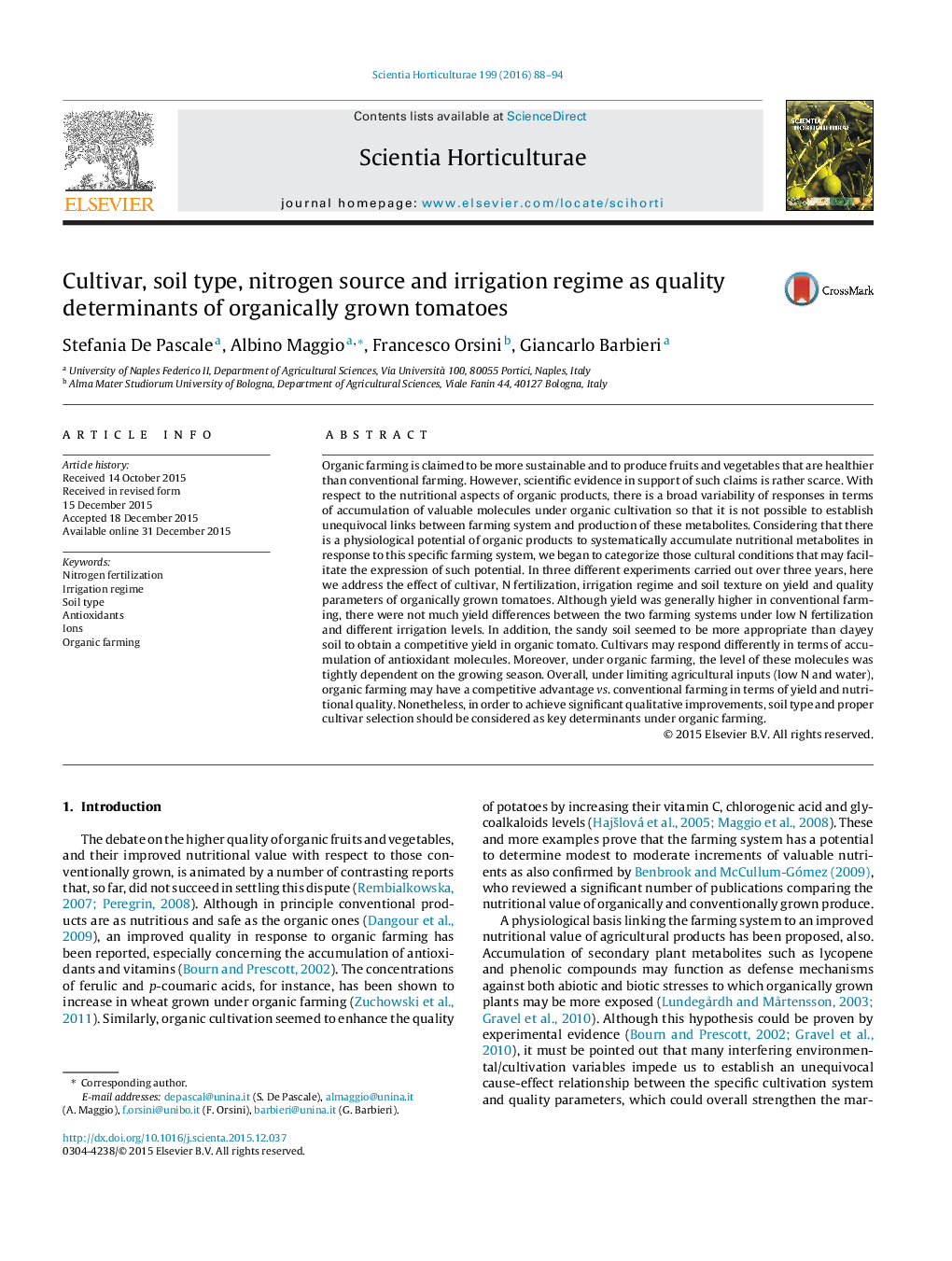| کد مقاله | کد نشریه | سال انتشار | مقاله انگلیسی | نسخه تمام متن |
|---|---|---|---|---|
| 4566118 | 1628799 | 2016 | 7 صفحه PDF | دانلود رایگان |
• Yield and quality of organically produced tomatoes can be improved.
• Cultivar and soil type are critical quality determinants under organic farming.
• Under suboptimal N and irrigation water availability, organic could be competitive vs. conventional farming.
• Links between crop stress and antioxidant levels should be better understood.
Organic farming is claimed to be more sustainable and to produce fruits and vegetables that are healthier than conventional farming. However, scientific evidence in support of such claims is rather scarce. With respect to the nutritional aspects of organic products, there is a broad variability of responses in terms of accumulation of valuable molecules under organic cultivation so that it is not possible to establish unequivocal links between farming system and production of these metabolites. Considering that there is a physiological potential of organic products to systematically accumulate nutritional metabolites in response to this specific farming system, we began to categorize those cultural conditions that may facilitate the expression of such potential. In three different experiments carried out over three years, here we address the effect of cultivar, N fertilization, irrigation regime and soil texture on yield and quality parameters of organically grown tomatoes. Although yield was generally higher in conventional farming, there were not much yield differences between the two farming systems under low N fertilization and different irrigation levels. In addition, the sandy soil seemed to be more appropriate than clayey soil to obtain a competitive yield in organic tomato. Cultivars may respond differently in terms of accumulation of antioxidant molecules. Moreover, under organic farming, the level of these molecules was tightly dependent on the growing season. Overall, under limiting agricultural inputs (low N and water), organic farming may have a competitive advantage vs. conventional farming in terms of yield and nutritional quality. Nonetheless, in order to achieve significant qualitative improvements, soil type and proper cultivar selection should be considered as key determinants under organic farming.
Journal: Scientia Horticulturae - Volume 199, 16 February 2016, Pages 88–94
